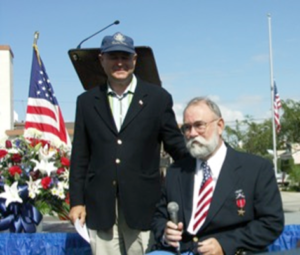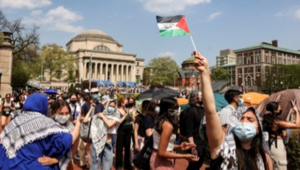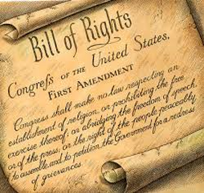[vc_row][vc_column][vc_single_image image=”949″ img_size=”full” alignment=”center”][vc_column_text]
August 2024 Newsletter
[/vc_column_text][/vc_column][/vc_row][vc_row][vc_column width=”2/3″][vc_column_text]
Advancing Christian Faith and Values,
Defending Religious Liberty for All,
Supporting Civility and the Common Good
through Preaching, Teaching, Writing,
Activism and Reasoned Conversations
www.donaldshoemakerministries.com[/vc_column_text][/vc_column][vc_column width=”1/3″][vc_single_image image=”1304″ img_size=”full” alignment=”center”][/vc_column][/vc_row][vc_row css=”.vc_custom_1598373738095{border-radius: 3px !important;}”][vc_column][vc_column_text]
The Black Family Reunion
[/vc_column_text][/vc_column][/vc_row][vc_row css=”.vc_custom_1598373738095{border-radius: 3px !important;}”][vc_column width=”1/2″][vc_single_image image=”2062″ img_size=”full” alignment=”center”][/vc_column][vc_column width=”1/2″][vc_column_text]Colbert King writes – “I am setting aside this weekend to engage in a historic ritual: a Black family reunion.
“It is a tradition that grows out of the post-emancipation era when formerly enslaved men and women sought to be reunited with family members who had been separated from them or sold away by enslavers.”
The Washington Post (Jun 29, 2024)
[/vc_column_text][/vc_column][/vc_row][vc_row css=”.vc_custom_1598373738095{border-radius: 3px !important;}”][vc_column][vc_column_text]
 George Gentry—
George Gentry—
A Soldier of Christ and of Country
 A Bronze Star for Heroic Military Service
A Bronze Star for Heroic Military Service
December 8, 1967 was special for me—my 23rd birthday. Half a world away in Vietnam, that day was also significant for U.S. Army Lt. George Gentry. While leading his platoon on an assignment he was severely injured by a land mine. With wounds and paralyzed from the waist down, George was taken to several hospitals. He retired from the Army in March 1968, and later settled in So. California. During one hospitalization he met his future wife, Chris.
I became George’s pastor in 1984 at Grace Brethren Church (later to be Grace Community Church) in Seal Beach, California. George had intense passion for the men and women in the armed forces and for our missionaries around the world. Knowing that our church was in a denomination that had a tradition of military “non-combatance” (derived from, but not the same as pacifism), George asked me early on if I supported that position. He was firm. If I did, he would have to leave the church, he told me. I didn’t and so he didn’t either!
George regarded each day of life after that December 8 as a bonus gift from God. He took his service for God seriously, all along supported by Chris, who shared in his travels, church ministries, many hospitalizations and more.
His recent years saw many lengthy hospitalizations at the VA Hospital in Long Beach, California. Finally, on June 7, he departed this life at age 82, to be with the Lord he had loved and served.
Citizens of our nation must honor and never forget our veterans, especially those like George Gentry who paid a high price for their service, and those who paid the ultimate price.
[PICTURE: George is honored by U.S. Congressman Dana Rohrabacher at a “9/11 Remembrance” sponsored by Grace Community Church of Seal Beach in 2005.]
[/vc_column_text][/vc_column][/vc_row][vc_row css=”.vc_custom_1598373738095{border-radius: 3px !important;}”][vc_column][vc_column_text]Soon the Summer Recess Will Be Over…
What Universities Should Be Doing
What Universities Should Be Doing
 Students march and rally on Columbia University campus in support of a protest encampment supporting Palestinians, despite a 2pm deadline issued by university officials to disband or face suspension, during the ongoing conflict between Israel and the Palestinian Islamist group Hamas, in New York City, U.S.,
Students march and rally on Columbia University campus in support of a protest encampment supporting Palestinians, despite a 2pm deadline issued by university officials to disband or face suspension, during the ongoing conflict between Israel and the Palestinian Islamist group Hamas, in New York City, U.S.,
April 29, 2024. REUTERS
1. Assure the safety and security of all on campus.
All, including Jewish students, should have access to all campus spaces (classrooms, dorms, libraries, cafeterias, extracurricular spaces). [Comments under main points are abbreviated.]
2. Clarify and enforce existing rules surrounding protest.
Provide appropriate avenues for protests and clarify consequences for those who opt to break the rules. Warn those who break the rules about next steps, including calling in civil authorities. Protests must abide by time, place, and manner restrictions and not create a hostile atmosphere.
3. University leaders and especially student-facing administrators must check in with their Jewish community on campus.
Ensure their needs are being met and concerns taken seriously and communicate with Zionist students whose Jewish identities are increasingly targeted for hostility and invectives at protests.
4. Administrators should never cede ground to protesters who break clearly-established campus rules.
Administrators must not tolerate tactics of rule-breaking, bullying, harassment and violence, or reward these protestors by treating their conduct as starting points for negotiations.
5. Administrators should communicate clearly and unequivocally about what constitutes free speech versus unlicensed disruption.
Interfering with access to campus spaces, occupying buildings, vandalism, cancellation of classes, interruption of scheduled events—all are disruptions that interfere with free speech and the free exchange of ideas.[/vc_column_text][/vc_column][/vc_row][vc_row css=”.vc_custom_1598373738095{border-radius: 3px !important;}”][vc_column][vc_column_text]Religious Liberty Vigilance
Weigh Church Activism Carefully
in this Politically-Charged Season
 “I contemplate with sovereign reverence that act of the whole American people which declared that their legislature should ‘make no law respecting an establishment of religion, or prohibiting the free exercise thereof,’ thus building a wall of separation between Church & State.”
“I contemplate with sovereign reverence that act of the whole American people which declared that their legislature should ‘make no law respecting an establishment of religion, or prohibiting the free exercise thereof,’ thus building a wall of separation between Church & State.”
– Thomas Jefferson (1802) Letter to Danbury Baptists
Radical secularists like to raise “the wall of separation” against all religious activism, which is not what our founders envisioned. But the opposite extreme—churches heavily involved in politics—is not healthy either for the country or for the churches.
We are entering a political season where religious involvement will be active as never before. Some is necessary, much is permissible, little is prohibited by the Constitution. Let’s be careful. What is permissible may not be wise.
I recommend that pastors and activist lay members consider the counsel from Pastor/Theologian John Piper about patriotism in the sanctuary and pastors introducing politics into the worship experience.
The Sunday church gathering should be wonderfully and gloriously vertical in its focus. We gather to focus on God. But those gatherings can get horizontally hijacked by other good things…
If the Godward focus gets lost, Sunday becomes “man-centered” and “the vertical focus is blunted.” We need political activism, but not on Sunday morning. The Pledge of Allegiance, even American flags, do not belong in a worship service that is called to highlight the absolute allegiance that we have to Jesus.
– John Piper, Theocracy, Igniting Revolutions, and Patriotism in the Church
June 29, 2024
[/vc_column_text][/vc_column][/vc_row][vc_row css=”.vc_custom_1598373738095{border-radius: 3px !important;}”][vc_column][vc_column_text]
“Idolatry” – Have we crafted an idol?
And the Lord said to Moses, “Go down, for your people, whom you brought up out of the land of Egypt, have corrupted themselves. They have turned aside quickly out of the way that I commanded them. They have made for themselves a golden calf and have worshiped it and sacrificed to it and said, ‘These are your gods
[or: “This is your god”], O Israel, who brought you up out of the land of Egypt!’”
– Exodus 32:7-8 (ESV)
“Idolatry” comes in several flavors. Here’s a common one: “Idolatry is our attempt to fashion the god we would like to see, rather than seeing God as he has revealed himself, whom we should honor and accept and, as appropriate , strive to exemplify.”
Fashioning a god to suit ourselves was Israel’s sin when it made the golden calf. They were not turning to other gods.They tried to fashion God into an image of their own making, which they could relate to more easily.
I was listening to a Christian contemporary music station recently. Now, listening to the music isn’t wrong. In fact, it can be quite uplifting and edifying (sometimes not!). But the chatter between songs can become tedious to listen to (like the guest singer you bring to your church who rambles on between songs). Worse than tedious, the host can speak nonsense or even heresy.
On this occasion the radio host used many words to say something like this: “I saw a painting of Jesus holding a little child who pinched his nose, and Jesus laughed and laughed. Now, that’s the kind of Jesus I can believe in.”
Now Jesus probably was a guy who could be humored, just as he could be sorrowful or angry. But the biblical revelation doesn’t present the humor.
Better to repent of this idolatry and look at the Bible’s depictions. Better to see Jesus weeping than laughing. I’m glad English translators emphasized “Jesus wept” by making these words the Bible’s shortest verse (John 11:35). Jesus deeply empathizes with our sorrows, as the Gospel song says: “He took my sins and my sorrows and made them his very own.” Paint him that way!
Don’t create an image of God; let’s BE God’s likeness (Ephesians 4:24+).
“The Apostles’ Creed” (Part 7)
 I believe in the Holy Spirit
I believe in the Holy Spirit
“Without the Holy Spirit, God is distant, Christ is in the past, the Gospel is a dead letter, the Church is simply an organization, authority is domination, mission is propaganda, worship is the summoning of spirits, and Christian action is the morality of slaves.”
– Ignatius Hazim, Patriarch of Antioch
We come now to the third and final section of The Apostles’ Creed. The first section centered on God the Father; the second on Jesus Christ, God’s Son.
The third section has only ONE STATEMENT on the Holy Spirit before moving on to other topics—topics not unrelated to the Holy Spirit, but not focused on him either.
How much of the Latin Creed is devoted to the Father, Son and Holy Spirit?
God the Father – 9 words
Jesus Christ, God’s Son – 51 words
The Holy Spirit – 4 words, out of 16 in the third section
“Credo in Spiritum Sanctum”
7A – Does the Creed minimize the person and work of the Holy Spirit?
Yes and no. Certainly, it might make it easier for us to pass quickly over the Spirit in our minds. Lots of Christians have done this, sometimes from sheer negligence or from fear because we think the Holy Spirit is overplayed in some churches and movements—and that’s not an unfounded fear.
But the way to respond to this fear is not to minimize the Spirit but to teach on the Spirit correctly, that we might then experience the Spirit genuinely. Are some congregations fearful of what might happen if the Holy Spirit ever got “loose” in its midst? We’d rather play it safe and keep the Dove in a cage!
7B – The Holy Spirit’s primary ministry is to direct us to Jesus Christ.
“When he, the Spirit of truth, comes, he will guide you into all truth… He will bring glory to me by taking from what is mine and making it known to you.”
– Jesus (John 16:12-15)
“No one can say, ‘Jesus is Lord’ except by the Holy Spirit.” (1 Corinthians 12:3).
Of course, we can “mouth” the confession “Jesus is Lord” without the Spirit. Jesus himself said many will say “Lord, Lord” and not know him (Matthew 7:21-23). But a genuine, heart-felt confession/commitment to the Lordship of Christ, including in my opinion embracing Jesus’ deity, is only possible by the unction and empowerment of the Holy Spirit.
NOTE: In 1 Corinthians 12:3 the confession “Jesus is Lord” is set against the absolute denial of Jesus’ Lordship—“anáthema Iēsous,” which is definitely not by the Holy Spirit. It is possible this can be seen in the context of persecution, where one who claims to be a follower of Jesus is called on to curse him. The curse can’t be by the Spirit, nor is the confession “Caesar is Lord” of the Sprit. But the confession “Kúrios Iēsous” in the face of persecution is definitely of the Holy Spirit (see Mark 13:11). It is hard for modern Christians who enjoy religious liberty and free speech to grasp how significant this confession induced by the Spirit would be in a world where Caesar is Jesus’ arch-competitor.
For a discussion of confessing or cursing Jesus in a persecution context: Oscar Cullmann, The Christology of the New Testament, chapter 7, especially pages 215-22.
I also note that this confession is at the introduction to the Apostle Paul’s very lengthy teaching on charismatic gifts (1 Corinthians 12-14). Being Spirit-filled is not proven by some kind of rapturous display—even pagans can do that, Paul says! No, the Spirit’s empowerment is evidenced by a credible, mindful conviction and confession that “Jesus is Lord.” See the opening three verses of 1 Corinthians 12 for this.
Since the Spirit is in the world to draw people to Jesus, it is fitting that the Creed devotes so much space to highlighting Jesus. In my mind, this doesn’t mean overlooking the Spirit. It means responding to the ministry of the Spirit.
“Where Christ is prominent, the Spirit is at work.
Where the Spirit is prominent, he is not being allowed to do his work.”
To put it another way, the Christ-filled church (the church where Jesus is highlighted and worshipped, taught and served) is the truly Spirit-filled church, whether that church be Pentecostal or not, Charismatic or not.
Ponder the parallel between the very well-known Ephesians 5:18 and the lesser known Colossians 3:16:
“Be filled with the Spirit” – Ephesians 5:18
“Let the word of Christ dwell in you richly” – Colossians 3:16
I suggest: to be filled with the Spirit and to have the word (message) of Christ dwelling in us richly are essentially the same thing. Read the contexts.
The Apostles’ Creed is “right on” with its emphasis on Jesus!
7C – How does the Nicene Creed (381 AD) expand teaching on the Holy Spirit beyond the four words of The Apostles Creed?
The Nicene Creed is important is that it is the only creed proclaimed throughout the Christian world. Here are its clear words about the Spirit:
And we believe in the Holy Spirit,
the Lord, the giver of life.
He proceeds from the Father and the Son,
and with the Father and the Son
is worshiped and glorified.
He spoke through the prophets.
7D – What was the “filioque” controversy?
The Latin text of the Nicene Creed (as recited in Western churches) says: qui ex Patre Filioque [“and the son”] procedit. Does the Holy Spirit proceed from the Father alone, or “from the Father and the Son”? Here is what Jesus said:
“When the counselor comes, whom I will send to you from the Father, the spirit of truth who goes out from the Father [qui a Patre procedit—Latin Vulgate], he will testify about me.” – John 15:26-27
So, Scripture is explicit that the Holy Spirit proceeds from the Father. But from the Son also? The Spirit is sent by Jesus according to verse 26. And John 14:15 (NIV) tells us Jesus “will ask the Father, and he will give you another Counselor…the Spirit of truth.” Furthermore, Revelation 22:1 depicts the “water of life” flowing “from the throne of God and of the Lamb.”
It seems to me that the Spirit proceeds from the Father in a direct sense, and proceeds from the Son in a supportive sense. But the explicit teaching of scripture establishes that the Spirit proceeded from the Father.
If you wonder why this issue (over one word in Latin) should split Christianity into East and West in 1056 AD, you wonder with me. But, as is typical in all church splits, there is more to it than what lies on the surface.
The surface issue: Should the phrase “and the son” be in the Creed?
The much bigger underlying issue: The question of where authority ought to reside in the church under the ultimate rule of Christ.
Here is a very brief summary of the controversy:
• The word “filioque” was NOT in the Nicene Creed of 381 AD.
• From the 6th Century on, many Latin (Western) liturgies added the phrase.
• In 1014 the pope approved adding “and the son” into the liturgy of Rome but this was rejected by Eastern Christianity.
• The phrase was an issue in the East/West division of Christianity in 1054 AD.
As I see it, the fundamental issue was the question: ”Who has the right to change the Nicene Creed?” The Eastern Churches insisted that a decision by an ecumenical council could only be altered by another ecumenical council. Nothing or no one else had the authority to do so, not even the pope.
Beyond this, some thought that leaving out the phrase diminished the position of God the Son. Others thought that including the phrase diminished the position of God the Father.
Very frankly, I have trouble making an issue over the “filioque” clause. Proper teaching can present the roles of God the Father and God the Son appropriately. The Nicene Creed is correct with or without the clause.
Am I missing something or being simplistic or in error on this? Your input to me is welcome. I’ve tried to think of an analogy. A newborn “proceeds” from the mother and father, but not in the same way. The father “issues forth” the seed; the mother “issues forth” the ovum and the newborn “proceeds from” her womb. The two “proceedings” seem to be on two different planes. But if we must pick one, I’d say the newborn “proceeds from” the mother.
7E – What are the key ministries of the Holy Spirit?
Rather than giving lengthy points, I simply pass on six important ministries of the Holy Spirit, the first four coming from Dr. James Packer. The Holy Spirit:
1. Convinces us of the truth of the Gospel
2. Assures us we are God’s children (Romans 8:16)
3. Moves us to bear witness to Christ
4. Bestows one or more spiritual (charismatic) gifts on every Christian
5. Intercedes for us according to the will of God (Romans 8:26-27)
6. Will someday give life to our mortal bodies (Romans 8:11)
The Spirit also must guide and fill our worship services, empowering us to sing psalms, hymns and spiritual songs from our hearts (Ephesians 5:18-20).
I fear that today’s trend toward technology, professionalism and showiness in worship can quench the Holy Spirit and make his presence superfluous.
What difference would it make in our worship time if the Holy Spirit didn’t show up at church next Sunday?
7F – What must I “do” to receive the Holy Spirit?
The first thing to do is toss away all the lists of things you may have tried that tell you what you must do to receive (or be filled with) the Holy Spirit, whether it is Kenneth Copeland’s seven points, Oral Robert’s four points, Campus Crusade’s four points, John Walvoord’s three points, Don Basham’s breathing exercises, or any others.
The second thing to do is read what Peter told the convicted crowd on the Day of Pentecost (the bold is mine, not Luke’s or Peter’s):
Now when they heard this [Peter’s message about Jesus—his death, resurrection and exaltation—read Acts 2:22-36] they were cut to the heart, and said to Peter and the rest of the apostles, “Brothers, what shall we do?” And Peter said to them, “Repent and be baptized every one of you in the name of Jesus Christ for the forgiveness of your sins, and you will receive the gift of the Holy Spirit. For the promise is for you and for your children and for all who are far off, everyone whom the Lord our God calls to himself.”
(1) Repentance (a “change of heart” about our sin and our rejection of Jesus) and (2) water baptism—these are the two “steps” Peter told the crowd of seekers to “do.” “Do” is in quotes because ultimately repentance and baptism are not works we do but rather God’s works in us and for us.
Baptism is better understood as the visible sign of the gift of the Holy Spirit rather than its effective cause. We see this from Acts 10:44-48, where the gift of the Holy Spirit preceded the gift of baptism. As I see it, the gift of the Spirit is not bestowed through baptism nor is it to be separated from baptism. Check it out in the New Testament, which is always a good thing to do. And remember this: “The idea of an unbaptized believer does not seem to be entertained in the New Testament” (F. F. Bruce, The Book of Acts, p. 70).
“The work of the Holy Spirit is to manifest the active presence of God in the world, and especially in the church.”
“The Holy Spirit gives stronger or weaker evidence of the presence and
blessing of God, according to our response to him.”
“The Holy Spirit’s influence will be to bring a Godlike character or atmosphere
to the situations in which he is active.” – Wayne Grudem, Systematic Theology
Holy Sprit, ever living as the Church’s very life;
Holy Spirit, ever striving through us in a ceaseless strife;
Holy Spirit, ever forming in the Church the mind of Christ;
You we praise with endless worship for your fruits and gifts unpriced.
– Timothy Rees (1921)
[/vc_column_text][/vc_column][/vc_row][vc_row][vc_column][vc_column_text]  An Unexpected
An Unexpected
Dinner Guest
As my wife and I dined at a popular restaurant in Old Town Seal Beach we realized we had a surprise guest at our table!
www.donaldshoemakerministries.com
Don has been a member of the clergy in the Long Beach, California area since 1970. He has served as Pastor Emeritus of Grace Community Church of Seal Beach (where he was senior pastor 1984-2012) and as Senior Chaplain of the Seal Beach Police Department (2001-2024). He previously was an assistant professor of Biblical Studies at Biola University (1976-84) and chaired the Social Concerns Committee in the Fellowship of Grace Brethren Churches from 1985 to 2019.
His graduate work includes a Master of Divinity magna cum laude from Grace Theological Seminary, a Master of Theology from Fuller Theological Seminary with a concentration in Christian ethics, and a Doctor of Ministry from American Baptist Seminary of the West (now Berkeley School of Theology) with a concentration on the Charismatic Movement. His law school studies included a course on the First Amendment.
Don and his wife Mary have been married for 58 years. They have two children and six grandchildren, plus now a grandson-in-law. They recently moved to Temecula, California.
© 2024 Donald P. Shoemaker
[/vc_column_text][/vc_column][/vc_row]

